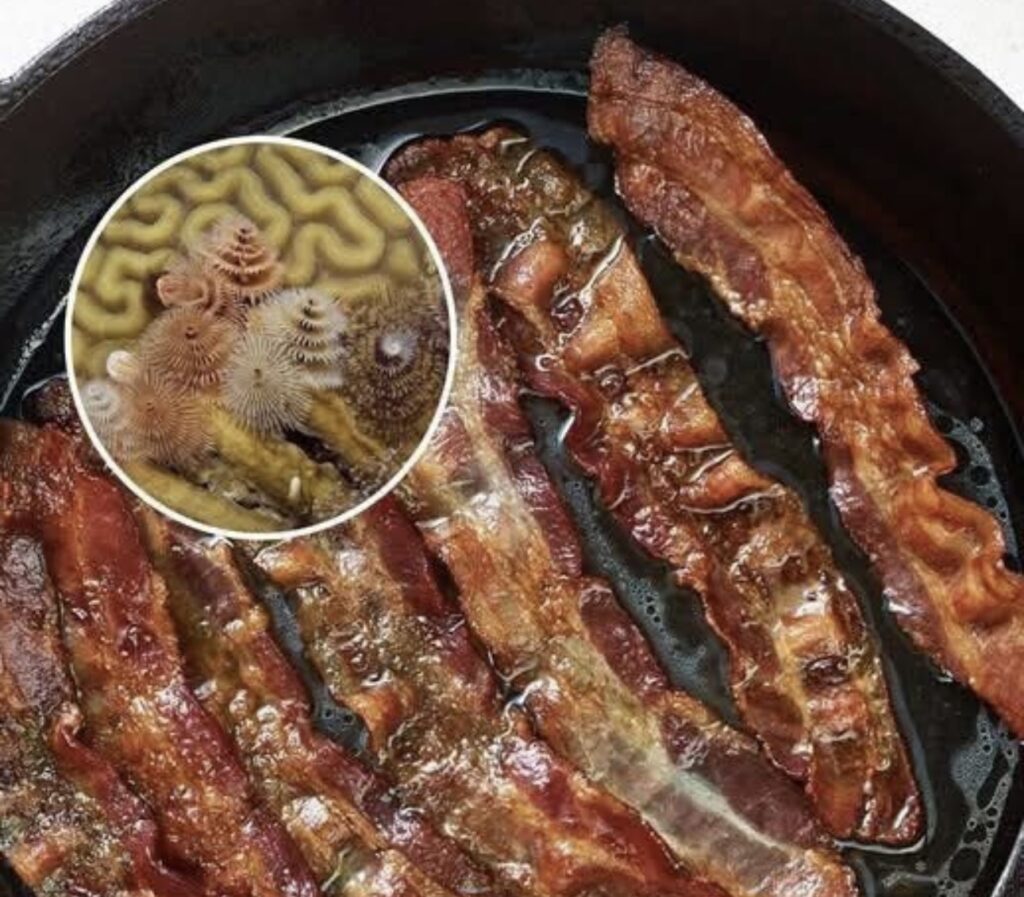
A shocking medical case has highlighted the dangers of undercooking pork. A man was recently diagnosed with a parasitic infection known as cysticercosis, caused by pork tapeworm larvae (Taenia solium). Doctors revealed the infection developed after years of one careless cooking habit: regularly eating undercooked pork.
What Happened
The man reported recurring headaches, seizures, and muscle pain. After medical imaging, doctors discovered cyst-like growths in his brain and muscles — the result of tapeworm larvae forming cysts, often referred to as “pork worms.”
When asked about his eating habits, the patient admitted he frequently enjoyed pork that was only partially cooked, believing that “a little pink in the middle” added flavor and tenderness. Unfortunately, this habit exposed him to parasitic eggs and larvae.
Understanding the Risk
Pork can harbor Taenia solium, a tapeworm parasite. If the meat is undercooked, the larvae can survive and infect the human body. While digestive infections may cause abdominal discomfort, nausea, and weight loss, the real danger occurs when larvae migrate to muscles, eyes, or the brain.
- Neurocysticercosis (Brain Infection): Can cause seizures, severe headaches, confusion, or even death.
- Muscle Infections: Lead to painful lumps and weakness.
- Eye Infections: May cause vision problems or blindness.
The World Health Organization lists neurocysticercosis as one of the leading causes of preventable epilepsy worldwide.
How to Stay Safe
Experts stress that the key to prevention is proper cooking and handling of pork:
- Always cook pork to an internal temperature of at least 145°F (63°C), followed by a three-minute rest time.
- Avoid tasting meat before it’s fully cooked.
- Wash hands, utensils, and surfaces after handling raw pork.
- Buy pork from trusted sources that follow safe handling practices.
The Bigger Picture
This case serves as a stark reminder that cultural habits and shortcuts in the kitchen can carry serious health risks. While undercooked pork may seem harmless, the potential consequences can be life-altering.
As for the patient, he received antiparasitic treatment and supportive care. Doctors report his condition is improving — but his story is a cautionary tale for anyone tempted to serve pork “a little rare.”




Leave a Comment